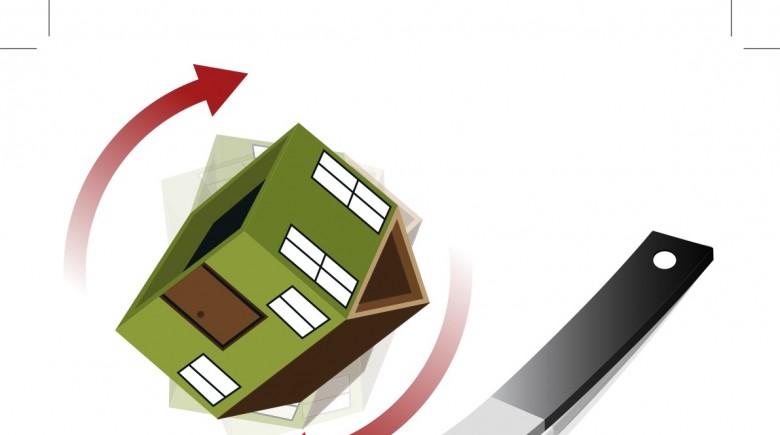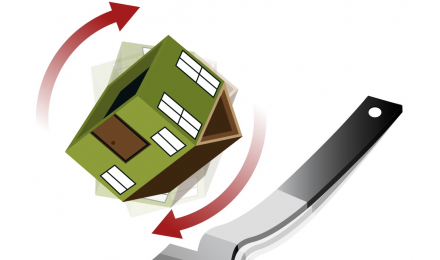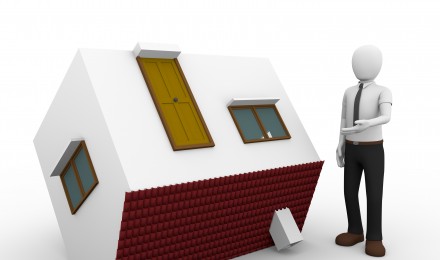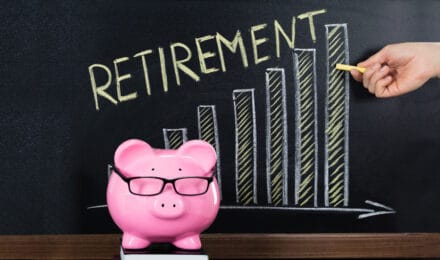If you live in Orlando or Las Vegas, house flipping can be a good idea. Far less but still OK if you are in Detroit, Michigan.
The subject of house flipping (which I sometimes caution against because of the high potential rewards with equally high risks), came up again this week as RealtyTrac released its top 25 markets for flipping. Orlando and Las Vegas topped the list while Detroit (of all places) made up the last of the 25 areas surveyed.
Detroit showed a gross profit of 8%, with 3,405 homes sold at an average price of $74,229, then flipped for $80,391. Not bad for a horrible home market.
Orlando and Vegas did much better, (1,912 flips for Orlando and 4,341 for Vegas), showing an amazing profit of 63% and 53% over sold prices. The Orlando average purchase price was $103,701 for a flipped home that sold for an average of $168,677, the study found.
If you happen to live among the top 25 markets, it might seem flipping is back. Home prices are again rising and the RealtyTrac statistics show that even in lowly Detroit, investors are making money.
Flipping homes, you may recall, involves buying, rehabbing and reselling for a profit usually within about 90 days.
Some implications of this study:
—On paper, it looks good because average gains implied 10% in all but one of the top 25 markets (and investors may get goggle-eyed at that 60% number in Orlando).
—These are not huge numbers in volume, of course, and there are a lot of warnings about the perils of such efforts. Serious risks include but are not limited to costs of repairs and remodeling, which can easily skyrocket. So like the cigarette packs, heed this warning.
—Many if not most of the flips were foreclosures. The study really did not say for sure. But intelligent investors got into this market a few years ago. If you decide to do it tomorrow, you are kind of…late.
—If you do want to now get into the market, consider that the economics are tougher than ever, in part because so many investors from out of the US have seen its potential. They have driven prices up to the point where it is likely you will pay asking price or even more.
—Also consider that if you want to buy, you better have cash. It used to be that banks financed many flips, but no more.
—Home values in many of these markets are about half where they were six years ago. Many observers think selling prices won’t get any lower. But flipping prices may continue to go up.
RealtyTrac chief economist Jake Adger said it’s not a coincidence that many of the cities dominating the upper reaches of the chart are in California, Florida and Arizona, which were all hit hard by the housing downturn of recent years.
So what’s the prognosis ahead? Flipping is not likely to abate.
Even with prices rising and foreclosures disappearing, Adger is among those see no signs of the flipping trend slowing.
Just watch where you live. ###
If you live in Orlando or Las Vegas, house flipping can be a good idea. Far less but still OK if you are in Detroit, Michigan.
The subject of house flipping (which I sometimes caution against because of the high potential rewards with equally high risks), came up again this week as RealtyTrac released its top 25 markets for flipping. Orlando and Las Vegas topped the list while Detroit (of all places) made up the last of the 25 areas surveyed.
Detroit showed a gross profit of 8%, with 3,405 homes sold at an average price of $74,229, then flipped for $80,391. Not bad for a horrible home market.
Orlando and Vegas did much better, (1,912 flips for Orlando and 4,341 for Vegas), showing an amazing profit of 63% and 53% over sold prices. The Orlando average purchase price was $103,701 for a flipped home that sold for an average of $168,677, the study found.
If you happen to live among the top 25 markets, it might seem flipping is back. Home prices are again rising and the RealtyTrac statistics show that even in lowly Detroit, investors are making money.
Flipping homes, you may recall, involves buying, rehabbing and reselling for a profit usually within about 90 days.
Some implications of this study:
—On paper, it looks good because average gains implied 10% in all but one of the top 25 markets (and investors may get goggle-eyed at that 60% number in Orlando).
—These are not huge numbers in volume, of course, and there are a lot of warnings about the perils of such efforts. Serious risks include but are not limited to costs of repairs and remodeling, which can easily skyrocket. So like the cigarette packs, heed this warning.
—Many if not most of the flips were foreclosures. The study really did not say for sure. But intelligent investors got into this market a few years ago. If you decide to do it tomorrow, you are kind of…late.
—If you do want to now get into the market, consider that the economics are tougher than ever, in part because so many investors from out of the US have seen its potential. They have driven prices up to the point where it is likely you will pay asking price or even more.
—Also consider that if you want to buy, you better have cash. It used to be that banks financed many flips, but no more.
—Home values in many of these markets are about half where they were six years ago. Many observers think selling prices won’t get any lower. But flipping prices may continue to go up.
RealtyTrac chief economist Jake Adger said it’s not a coincidence that many of the cities dominating the upper reaches of the chart are in California, Florida and Arizona, which were all hit hard by the housing downturn of recent years.
So what’s the prognosis ahead? Flipping is not likely to abate.
Even with prices rising and foreclosures disappearing, Adger is among those see no signs of the flipping trend slowing.
Just watch where you live. ###








